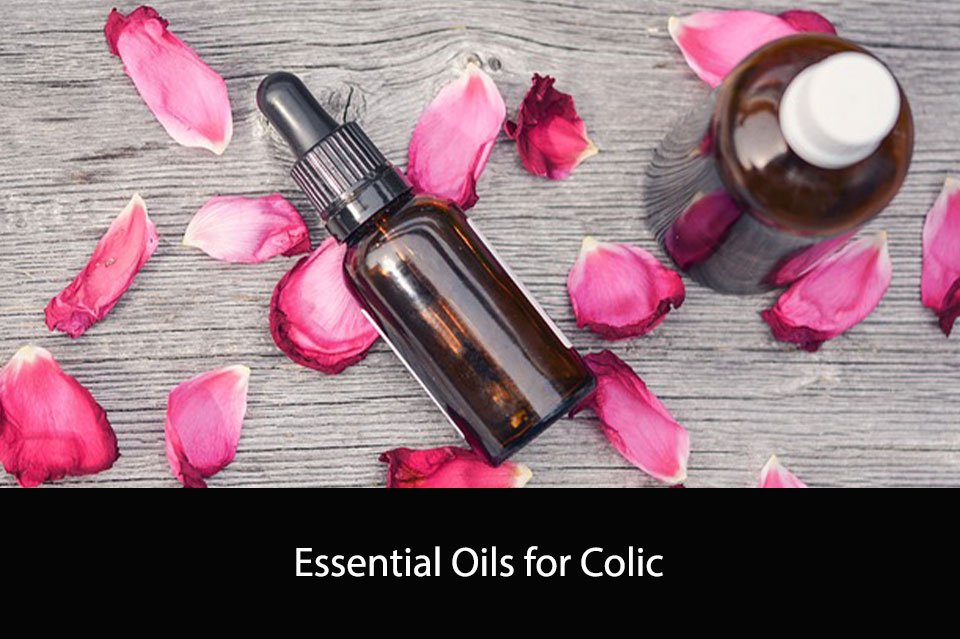Essential oils have been used for centuries for their therapeutic properties. They are extracted from various parts of plants and contain the plant’s natural fragrance and essence. In recent years, essential oils have gained popularity as a natural remedy for various health conditions, including carpal tunnel syndrome.

Carpal tunnel syndrome is a common condition that affects the wrist and hand. It is caused by compression of the median nerve, which runs through a narrow passage in the wrist called the carpal tunnel. Symptoms of carpal tunnel syndrome include pain, numbness, and tingling in the hand and fingers. While there are various treatments available for carpal tunnel syndrome, some people turn to essential oils as a natural alternative.
Essential oils can be used topically, inhaled, or ingested, depending on the oil and the desired effect. Some essential oils have anti-inflammatory and pain-relieving properties that may help alleviate the symptoms of carpal tunnel syndrome. In this article, we will explore the use of essential oils for carpal tunnel syndrome and discuss the evidence behind their effectiveness.
Understanding Carpal Tunnel Syndrome

Carpal tunnel syndrome is a common condition that affects the hand and wrist. It occurs when the median nerve, which runs from the forearm into the hand, becomes compressed or squeezed at the wrist. This can cause pain, numbness, and tingling in the hand and fingers.
There are many factors that can contribute to the development of carpal tunnel syndrome, including repetitive hand movements, injury, and certain medical conditions such as diabetes and arthritis. It is important to identify and address these underlying causes to effectively manage the symptoms of carpal tunnel syndrome.
Some common symptoms of carpal tunnel syndrome include:
- Numbness or tingling in the thumb, index, middle, and ring fingers
- Pain or discomfort in the hand and wrist
- Weakness in the hand and difficulty gripping objects
There are many treatment options available for carpal tunnel syndrome, including physical therapy, wrist splints, and surgery. In addition, many people find relief from their symptoms through the use of essential oils.
Essential oils such as peppermint, lavender, and frankincense have been shown to have anti-inflammatory and analgesic properties that can help reduce pain and swelling associated with carpal tunnel syndrome. These oils can be applied topically to the affected area or used in aromatherapy to promote relaxation and reduce stress.
It is important to note that while essential oils can be a helpful addition to a comprehensive treatment plan for carpal tunnel syndrome, they should not be used as a substitute for medical advice or treatment. It is always best to consult with a healthcare professional before using essential oils or any other complementary therapies.
Benefits of Essential Oils for Carpal Tunnel

We have found that essential oils can provide relief to those suffering from carpal tunnel syndrome. Essential oils have been used for centuries to help with a wide range of health issues, and carpal tunnel is no exception.
One of the main benefits of using essential oils for carpal tunnel is their ability to reduce inflammation. Inflammation is a key factor in carpal tunnel syndrome, and reducing it can help to alleviate pain and discomfort. Essential oils such as ginger, turmeric, and frankincense have anti-inflammatory properties that can help to reduce swelling and inflammation in the affected area.
Another benefit of essential oils for carpal tunnel is their ability to improve circulation. Poor circulation can worsen the symptoms of carpal tunnel, and essential oils such as peppermint and rosemary can help to improve blood flow to the affected area. This can help to reduce pain and discomfort, as well as promote healing.
Essential oils can also provide a natural alternative to pain medication. Many people with carpal tunnel rely on pain medication to manage their symptoms, but essential oils can provide a natural and effective alternative. Essential oils such as lavender and chamomile have analgesic properties that can help to reduce pain and promote relaxation.
Overall, essential oils can be a useful tool in managing the symptoms of carpal tunnel syndrome. They can help to reduce inflammation, improve circulation, and provide natural pain relief. If you are considering using essential oils for carpal tunnel, be sure to talk to your healthcare provider first to ensure that they are safe for you to use.
Top Essential Oils for Carpal Tunnel

If you’re experiencing pain, numbness, or tingling in your hands and fingers due to carpal tunnel syndrome, essential oils may offer some relief. Here are some of the top essential oils that we recommend for carpal tunnel:
Lavender Oil
Lavender oil has a calming and soothing effect on the body, making it a great choice for reducing pain and inflammation associated with carpal tunnel syndrome. It can also help to promote relaxation and improve sleep, which can be beneficial for those who experience carpal tunnel symptoms at night.
Peppermint Oil
Peppermint oil has a cooling and numbing effect on the skin, which can help to reduce pain and inflammation associated with carpal tunnel syndrome. It also has a refreshing and invigorating scent, which can help to improve focus and mental clarity.
Eucalyptus Oil
Eucalyptus oil has anti-inflammatory and analgesic properties, making it a great choice for reducing pain and inflammation associated with carpal tunnel syndrome. It also has a refreshing and invigorating scent, which can help to improve mood and mental clarity.
Rosemary Oil
Rosemary oil has analgesic and anti-inflammatory properties, making it a great choice for reducing pain and inflammation associated with carpal tunnel syndrome. It also has a stimulating and invigorating scent, which can help to improve focus and mental clarity.
Frankincense Oil
Frankincense oil has anti-inflammatory and analgesic properties, making it a great choice for reducing pain and inflammation associated with carpal tunnel syndrome. It also has a calming and grounding scent, which can help to promote relaxation and reduce stress.
Overall, essential oils can be a safe and effective way to manage the symptoms of carpal tunnel syndrome. However, it’s important to use them properly and to consult with a healthcare professional if you have any concerns.
How to Use Essential Oils
Topical Application
When using essential oils topically, it is important to dilute them with a carrier oil such as coconut oil, almond oil, or jojoba oil. This helps to prevent skin irritation and ensures that the essential oil is properly absorbed into the skin. A general rule of thumb is to use 1-2 drops of essential oil per teaspoon of carrier oil.
To apply the diluted essential oil, simply massage it into the affected area. For carpal tunnel, apply the oil to the wrists and gently massage it in. It is important to wash your hands thoroughly after applying the oil to prevent any accidental contact with your eyes or mouth.
Aromatherapy
Aromatherapy is another effective way to use essential oils for carpal tunnel. Simply add a few drops of essential oil to a diffuser and let it fill the room with its therapeutic scent. Alternatively, you can add a few drops of essential oil to a bowl of hot water and inhale the steam.
Some of the best essential oils for aromatherapy include peppermint, lavender, eucalyptus, and frankincense. These oils have a soothing and calming effect on the body and can help to reduce pain and inflammation.
Essential Oil Blends
Another way to use essential oils for carpal tunnel is to create your own blend. This allows you to combine the therapeutic properties of multiple essential oils into one powerful treatment.
To create a blend, start by choosing 2-3 essential oils that have properties that are beneficial for carpal tunnel. For example, you could combine peppermint, lavender, and frankincense for a relaxing and pain-relieving blend.
Once you have chosen your oils, add 1-2 drops of each to a carrier oil and mix well. You can then apply the blend topically or use it in aromatherapy.
Overall, essential oils can be a helpful natural remedy for carpal tunnel. By using them topically, in aromatherapy, or in a blend, you can help to reduce pain and inflammation and promote healing.
Safety and Precautions
When using essential oils to manage carpal tunnel symptoms, it is important to prioritize safety and take necessary precautions. Here are some guidelines to follow:
Dilution Guidelines
Essential oils are highly concentrated and should never be applied directly to the skin without dilution. We recommend using a carrier oil, such as coconut or jojoba oil, to dilute the essential oil before applying it to the affected area. A general rule of thumb is to use 1-2 drops of essential oil per teaspoon of carrier oil.
Skin Sensitivity
It is important to patch test the diluted essential oil on a small area of skin before applying it to the affected area. This will help determine if you have any adverse reactions to the oil. If you experience any redness, itching, or irritation, discontinue use immediately.
Allergic Reactions
Some essential oils may cause allergic reactions in some individuals. If you have a history of allergies, we recommend consulting with a healthcare professional before using essential oils. Additionally, if you experience any symptoms of an allergic reaction, such as difficulty breathing or swelling of the face or throat, seek medical attention immediately.
By following these safety and precautionary guidelines, you can safely and effectively use essential oils to manage carpal tunnel symptoms.
Complementary Therapies
When it comes to managing carpal tunnel syndrome, complementary therapies can be a great addition to traditional medical treatments. These therapies can help reduce pain, improve function, and increase overall well-being. Here are some complementary therapies that may be helpful:
Physical Therapy
Physical therapy can be an effective way to manage carpal tunnel syndrome. A physical therapist can help you with exercises to improve strength and flexibility in your hands, wrists, and forearms. They can also teach you how to modify your activities to reduce strain on your hands and wrists.
Ergonomic Adjustments
Making ergonomic adjustments to your work environment can help reduce the strain on your hands and wrists. This can include adjusting your chair and desk height, using an ergonomic keyboard and mouse, and taking frequent breaks to stretch and rest your hands.
Stretching Exercises
Stretching exercises can help improve flexibility and reduce pain in your hands and wrists. Some simple exercises you can do include wrist flexor stretches, wrist extensor stretches, and finger stretches. These exercises can be done throughout the day to help keep your hands and wrists limber.
It’s important to remember that complementary therapies should not replace traditional medical treatments for carpal tunnel syndrome. However, incorporating these therapies into your overall treatment plan can help improve your symptoms and quality of life.
Choosing Quality Essential Oils
When it comes to choosing essential oils for carpal tunnel, it is important to select high-quality oils that are pure and unadulterated. Here are some tips to help you choose the best essential oils:
- Look for oils that are labeled as 100% pure and therapeutic grade. This ensures that the oil has not been diluted or mixed with other substances.
- Choose oils that are extracted through steam distillation or cold-pressing. These methods preserve the natural properties of the plant and produce high-quality oils.
- Check the Latin name of the plant on the label to ensure that you are getting the correct species of plant. Different species of plants can have different properties and effects.
- Consider the source of the oil. Look for oils that are sourced from reputable suppliers who have a strong commitment to quality and sustainability.
- Avoid oils that are labeled as fragrance oils or perfume oils. These oils are not suitable for therapeutic use and may contain synthetic chemicals.
By following these guidelines, you can ensure that you are choosing high-quality essential oils that are safe and effective for treating carpal tunnel.
Personal Experiences with Essential Oils for Carpal Tunnel
We have personally experienced the benefits of using essential oils for carpal tunnel syndrome. We found that a combination of peppermint, lavender, and frankincense essential oils worked best for us.
We applied a few drops of the essential oil blend to our wrists and forearms and gently massaged the area. The cooling sensation of peppermint oil provided immediate relief, while the relaxing properties of lavender oil helped to reduce inflammation and pain.
Frankincense oil, with its anti-inflammatory and analgesic properties, helped to further reduce discomfort and promote healing. We found that using this essential oil blend regularly helped to alleviate our carpal tunnel symptoms and improve our overall hand and wrist health.
In addition to the topical application of essential oils, we also found that diffusing essential oils in our workspace helped to reduce stress and tension in our hands and wrists. We particularly enjoyed diffusing a blend of lemon and eucalyptus oils, which helped to improve our focus and concentration while also providing a refreshing scent.
Overall, our personal experiences with essential oils for carpal tunnel have been positive. While we understand that individual results may vary, we believe that incorporating essential oils into a comprehensive treatment plan can be a safe and effective way to manage carpal tunnel symptoms.
Frequently Asked Questions
Which essential oils are most effective for relieving carpal tunnel syndrome symptoms?
There are several essential oils that are known to have anti-inflammatory and analgesic properties, which can help relieve the symptoms of carpal tunnel syndrome. Some of the most effective essential oils for managing carpal tunnel discomfort include peppermint, lavender, rosemary, eucalyptus, ginger, and frankincense.
How do you prepare a blend of essential oils for managing carpal tunnel discomfort?
To prepare a blend of essential oils for managing carpal tunnel discomfort, you will need a carrier oil such as coconut oil or sweet almond oil, as well as your chosen essential oils. Simply mix a few drops of each essential oil with the carrier oil and apply the mixture to the affected area. Alternatively, you can add a few drops of essential oil to a warm bath and soak your hands for 10-15 minutes.
Are there specific brands, like doTERRA, that offer blends suitable for carpal tunnel relief?
Yes, there are several brands that offer essential oil blends specifically designed to relieve the symptoms of carpal tunnel syndrome. doTERRA, Young Living, and Rocky Mountain Oils are just a few examples of reputable brands that offer blends suitable for carpal tunnel relief.
Can peppermint oil be used to alleviate the pain associated with carpal tunnel?
Yes, peppermint oil is known to have analgesic properties that can help alleviate the pain associated with carpal tunnel syndrome. Simply apply a few drops of peppermint oil to the affected area and massage gently.
What natural herbs or supplements can complement essential oils in treating carpal tunnel syndrome?
Some natural herbs and supplements that can complement essential oils in treating carpal tunnel syndrome include turmeric, ginger, omega-3 fatty acids, and magnesium. These natural remedies can help reduce inflammation and relieve pain.
Are there any dietary recommendations or foods to avoid for those suffering from carpal tunnel syndrome?
While there are no specific dietary recommendations for those suffering from carpal tunnel syndrome, it is generally recommended to maintain a healthy and balanced diet rich in fruits, vegetables, whole grains, and lean protein. It is also important to stay hydrated and avoid foods that are high in sugar and saturated fats, as these can contribute to inflammation and worsen symptoms.





